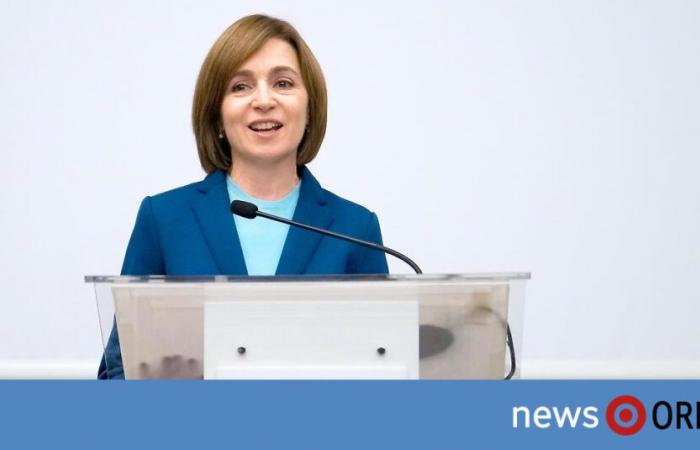The voters gave “a lesson in democracy that is ripe for the history books,” said Sandu. According to the media, she also addressed the population in Russian and said that she wanted to be a president for everyone – even for those who did not vote for her. “We need solidarity,” she said. Congratulations came from, among others, EU Commission President Ursula von der Leyen, French President Emmanuel Macron and Poland’s Prime Minister Donald Tusk.
After more than two-thirds of the votes were counted, Stoianoglo was still ahead by around 52 percent, according to the electoral commission. The 57-year-old ran for the Socialist Party of Moscow-friendly former President Igor Dodon.
Trend-setting choice
The vote in the former Soviet republic is seen as pointing the way towards the question of whether Moldova will turn towards Moscow or Brussels in the future. An important factor was the votes of Moldovans abroad, the majority of whom traditionally support Sandu’s pro-European course and who this time flocked to the polls: More than 320,000 citizens living abroad cast their votes on Sunday, which, according to the media, was the highest turnout of the diaspora since the country’s declaration of independence in 1991.
After the first round of elections on October 20th, there were already reports of widespread Russian influence on voters. The final round of the presidential race was also overshadowed by a series of serious incidents: According to the authorities, there were “provocations and attempts at destabilization” during the runoff election on Sunday. The police said they were investigating alleged “organized transports” of Moldovans living in Russia to Belarus, Azerbaijan and Turkey in order to enable them to take part in the runoff elections in consulates or embassies.
Bomb scares and cyberattacks
Accordingly, there were false bomb alarms and cyber attacks when voting abroad. The Central Election Commission (CEC) in Moldova was also hit by a denial-of-service (DoS) attack on election day, temporarily affecting the functionality of the system. The former pro-European head of government Natalia Gavrilita said bitterly in her first reaction after the election that her country had just taken part in “not an election, but a real hybrid war”.
Missed victory in the first round
Sandu was the favorite two weeks ago, but with 42 percent of the vote she missed an absolute majority. In a referendum that took place at the same time as the election, the enshrinement of Moldova’s desired EU accession in the constitution was passed very narrowly.
Stoianoglo did better than expected in the first round of voting with 26 percent. He has since received the support of other candidates who were eliminated after the first round. Among other things, he was supported by the pro-Russian socialists. Overall, the pro-Russian camp got 53.5 percent in the first round.
Warnings about vote buying
Sandu called on voters when they cast their votes on Sunday to take action against the “fraudsters”. She has trust in her fellow citizens, “who have always ensured that the country moves forward and is protected from evil.”
In view of the allegations of election interference by Russia, Sandu’s camp had once again increased its efforts to convince voters of the president’s pro-European course in the run-up to the runoff election. With campaigns in online services and home visits, their election workers also tried to prevent the buying of votes, which, according to police and observers, had taken place in the run-up to the first round of elections.
The police warned people not to let their voices be bought with loudspeaker announcements in supermarkets and via cell phone messages. According to the police, there were “massive” attempts to influence voters through telephone calls and emails. Some were even threatened with death.
Criticism of the Western course
Sandu has been President of Moldova since 2020 and broke off relations with Russia. After the start of the Russian war of aggression in Ukraine in February 2022, it applied to join the EU. Accession talks have been ongoing since June.
Sandu’s critics accuse her of representing the interests of the West and failing to get the ailing economy and high inflation under control or to push forward judicial reforms. Because Sandu imposed a ban on Russian gas, energy prices rose, which annoys many consumers.






